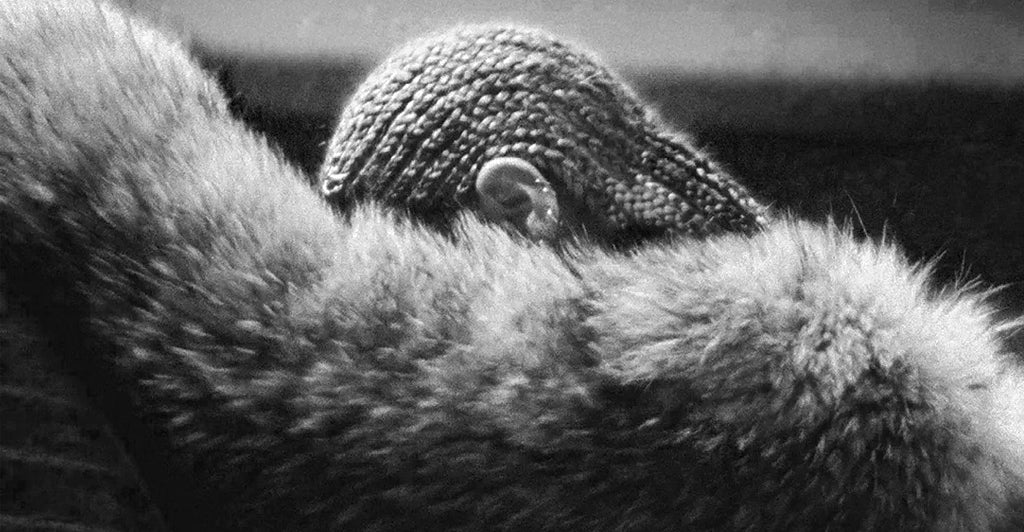By Lethabo Malatji for Nappy Head Club
Beyoncé’s Lemonade turns eight this month. Albeit biographical, Lemonade paints a clear picture of what every Black woman experiences at least once in their lifetime. Lemonade is a sonic and visual archival landscape of our experiences with love, pain, loss, and the political. It explores how these experiences are deeply tied to the systematic injustice her ancestors and herself have experienced and are currently experiencing. It showed us that no matter what position you hold in society, your identity on a political level can never be separate from your experiences, especially your experiences in love. It speaks to Black women and is a reminder that the injustices in Black communities have and will continue to affect our interpersonal relationships, whether you believe it or not. It acknowledges that, like the presence of memories, the past lives of those before us live through us if not dealt with. This album has a vital message for all Black women: acknowledging, healing, and reconciling with our history as Black women is the only way forward.
Using her marital problems as an example on this album, Beyoncé intimately discusses the effects of her partner’s infidelity on both her and her partner. She illustrates that the pain that he’s caused not only affects her but also affects him and those after them; their children. With this album, Beyoncé illustrates that the pain caused by this relationship is a call to investigate something deeper: how systems of oppression in both her and her partner’s ancestry find a way to exist in their relationship. For Beyoncé, this means resolving her relationship with her father and seeing how his marital relationship has affected hers, and could potentially affect those who come after her.
The words “the past and the present merge to meet us here” recited in the prelude to ‘Pray You Catch Me’ become a common theme throughout the album. Through all twelve chapters, we witness Beyoncé, a Black woman and global superstar, go through different stages of how she deals with and heals from the pain her partner caused her. These stages are categorized as chapters accompanied by poetry and a visual for each song. These stages are titled anger, apathy, reconciliation, and reformation. Beyoncé conjures different visual representations of events and cultures from the past and present to exist in one space simultaneously. These stages not only humanize her but also give voice to the complex emotions that accompany Black women when we experience betrayal in relationships. This is important because, for the longest time, Black women have been put in positions where we must suppress how we feel to remain palatable to others. Witnessing Beyoncé smash a car in rage in the song ‘Hold Up’ or scream and refer to herself as a dragon on ‘Don’t Hurt Yourself’ are reminders to Black women that we are human. It permits us to be human, and experience emotion like everyone else–something we weren’t allowed to do for a very long time. Remaining radical and poignant, Lemonade is a reminder that the personal is deeply tied to the political.
In the song ‘Love Drought’ Beyoncé re-enacts the Igbo Landing of 1803, where she is holding hands with a group of other Black women as they enter the waters, like the captive Igbo people who committed mass suicide. For them, dying was an act of resistance: it was better than being alive as a slave. And for Beyoncé, nothing is more important than liberating herself and healing from her lover’s betrayal and her family’s past.
In ‘Sorry,’ Beyonce’s last words, “You better call Becky with the good hair” creates a dialogue around Black hair and white women in America. In a Genius video on the topic, they explain that with this line Beyoncé weds two painful experiences for Black women. “Becky” is a term popularized by hip hop culture often used to refer to privileged white women who ridicule Black women. And “good hair” alludes to Black women’s painful relationship with conforming to European standards of beauty. The idea of her partner choosing a white woman over her is extremely painful. Beyoncé merges the personal and political, turning an extremely vulnerable moment into a moment that can create insightful dialogue about the past and how we heal and move forward.
Throughout the album’s visuals, Beyoncé adorns Black women in Southern gothic Antebellum attire of the 1800s and Yoruba traditional face paint and imagery. Setting the film in the south, particularly in Madewood Plantation House in Louisiana (a former sugarcane plantation), Beyoncé reimagines these spaces as sanctuaries for Black women to exist and live in harmony. She creates a world that centers Black women and our stories being placed at the forefront of history, including notable pop culture figures like Zendaya, Chloe x Halle, and Ibeyi, as well as the mothers of Trayvon Martin, Michael Brown and Eric Garner, whose sons were victims of police brutality. Beyoncé gives a voice to the Black women who bear the brunt of the injustice that plagues black people in America every day, while simultaneously making clear that the album is for black women from all walks of life.
Lemonade remains heartbreak’s most enthralling album because it encourages us to return to love even if it has hurt us in the past. Her message contradicts what has overly infiltrated today’s society: messages that encourage hate, resentment, and bitterness as a response when one has experienced heartbreak, betrayal, pain, and loss. Lemonade is a reminder that there is no shame in choosing love every time because “true love never has to hide.” In her Grammy speech, Beyoncé said, “We all experience pain and loss, and often we become inaudible. My intention for the film and album was to create a body of work that would give a voice to our pain, our struggles, our darkness, and our history. To confront issues that make us uncomfortable.” Further saying that “I feel it's vital that we learn from the past and recognise our tendencies to repeat our mistakes.” This album sheds light on the complexities of Black people’s interpersonal relationships, highlighting that our history of racial trauma is something that can not be easily separated from us. This lesson is especially poignant coming from a figure like Beyoncé—someone understood by the public to “have it all.” Yet even with her “having it all,” it can never separate her from the effects and experiences of her parents, grandparents, and their grandparents.
The title, Lemonade, is about how we heal. We are the healers and the alchemists: turning something sour into something sweet, turning loss into healing and reconciliation. The album pushes us to question ourselves and say, how do we heal ourselves?
It would be a grave mistake to only think of this album as a confessional tale of infidelity. With the lens of an intersectional feminist, Lemonade is an album about working in community with other Black women, healing, reconciliation, and owning one’s heritage. As previously stated, the album serves as a reminder that the personal cannot be separated from the political. Reflecting on this, I recall the remarks of author and scholar Naila Keleta-Mae from the University of Waterloo–she stated that Lemonade is an album that displays the work of a seasoned artist, one who is thinking about her musical legacy. Lemonade is a radical album because it is an album for Black women by a Black woman–and pop stars don’t make music for Black women.
 |
About the Author: Lethabo Malatji is a writer based in South Africa. In her free time, she writes on a freelance basis about music, art, culture, and her personal experiences. |




JOIN THE DISCUSSION (0 comments)